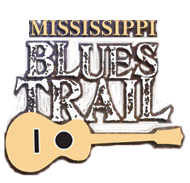Gospel and the Blues
Gospel and the Blues - Cleveland
Despite their conceptual differences, gospel, the Sunday morning music of the church, and blues, the Saturday night music of the juke joint, share some of the same roots, influences and musical traits. Many African African singers have performed in both fields. Rev. C.L. Franklin, who preached at St. Peter’s Rock M.B. Church here, influenced gospel, R&B and blues artists, and his daughters Aretha, Erma and Carolyn became noted soul singers after starting out singing in church.
Gospel music and the blues share a unique relationship, reflecting “two sides of the same coin,” some have said. African American theologian James Cone has written, “ . . . the blues and the spirituals flow from the same bedrock of experience, and neither is an adequate interpretation of black life without the other.” Spirituals and hymns preceded gospel, a genre that evolved through the work of Thomas A. Dorsey, a former blues singer and composer often called the “father of gospel music,” and others. The influence between religious music and blues has long been mutual. While both genres have their own distinct characteristics, many gospel songs have been transformed into blues or soul songs, and vice versa, by simply changing a few words in the lyrics.
Countless blues, R&B and soul performers started out singing in church. B.B. King, Denise LaSalle, Charley Patton, Son House, Muddy Waters, Bukka White, Memphis Minnie, Mississippi Fred McDowell, Lonnie Pitchford, Otha Turner and Leo “Bud” Welch are among the many Mississippi blues artists who have also recorded gospel and spirituals. Clarksdale-born Sam Cooke, famed for his gospel singing with the Soul Stirrers, made a controversial “crossover” into rhythm & blues to become a pop icon, while others, such as Gatemouth Moore and Pops Staples, left the blues behind to become preachers or gospel singers. Otis Clay was among those who maintained a foot in both worlds, continuing to sing both sacred and secular music. Blues and gospel singers often recorded for the same companies(including Chess, Vee-Jay, Excello, Peacock, Trumpet, J-V-B, Specialty, Malaco, Savoy and Jewel), socialized with each other, performed in the same communities, and during the segregation area shared similar touring experiences when many accommodations and facilities were closed to African Americans.
Blues legend Bobby Bland credited the vocal style of Reverend C.L. Franklin as a major inspiration, particularly Franklin’s recorded sermon “Eagle Stirreth Her Nest.” In 1958 Franklin officiated at the wedding of B.B. King, who called Franklin “my main minister.” Clarence LaVaughn Franklin (1915-1984) was born in Sunflower and in the mid-’20s moved with his family to the Cleveland area. As a youth he listened at home to records by both religious and blues artists, including Charley Patton and Tommy Johnson. He preached his first trial sermon at St. Peter’s Rock in 1931, and served at various churches in the Delta, Memphis and Buffalo, New York, until he moved to Detroit in 1946. Many of his sermons there at the New Bethel Baptist Church were recorded for the J-V-B and Chess labels. His daughter Erma was born in Shelby, while Aretha and Carolyn were born in Memphis.
Unlike some of his congregation members, Franklin saw no conflict between blues and the church, and once recalled, “I always liked the blues.” B.B. King, who sang gospel on the radio in the Delta in the 1940s, once said, “I’ve heard that black folks are supposed to have this big conflict between singing for the world and singing for God. Some of them surely are divided. I am not … I believe all music talent comes from God as a way to express beauty and human emotion.”
content © Mississippi Blues Commission
[ BACK TO TOP ]

